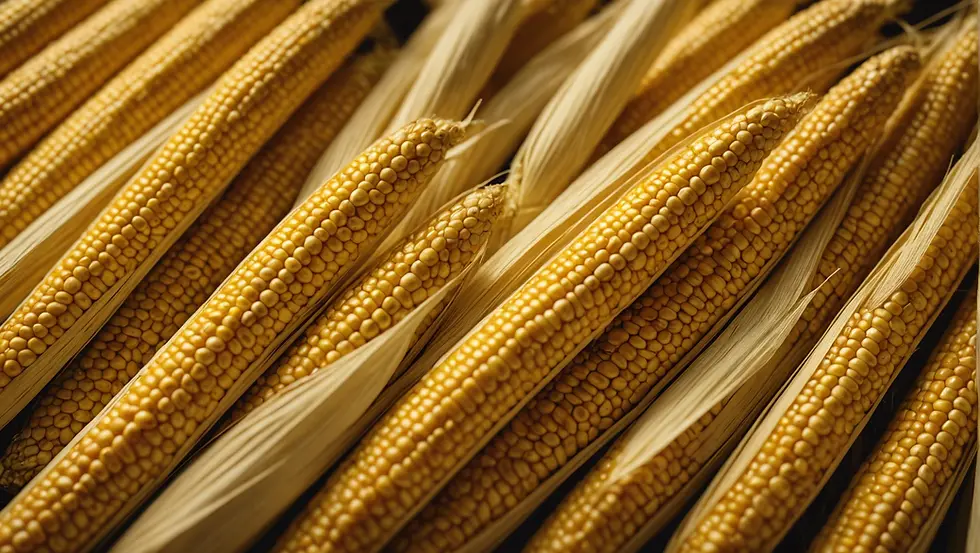Get to Know the Superfood Moringa
- mysmallworld4
- Sep 8, 2024
- 4 min read
Updated: Oct 3, 2024
Moringa: The Miracle Tree for You and Your Pets

Moringa oleifera, often referred to as the “miracle tree,” is an extraordinary plant packed with nutrients that can be a powerful addition to your diet—and even your pets’ diets! This versatile superfood is used in many cultures for its remarkable health benefits. From its high levels of vitamins, minerals, and antioxidants to its ability to nourish without being overcooked, moringa truly lives up to its reputation.
Nutritional Power in One Tablespoon of Dried Moringa
In just one tablespoon of dried moringa powder, you’ll find an impressive array of nutrients. Here’s what you can expect:
• Vitamin C: 12% of the RDA (Recommended Daily Allowance)
(Comparable to a serving of orange juice, which provides around 93% of the RDA in one cup)
• Vitamin A: 32% of the RDA
(Comparable to half a carrot, which provides about 51% of the RDA)
• Calcium: 8% of the RDA
(Comparable to a cup of milk, which contains about 30% of the RDA)
• Potassium: 5% of the RDA
(Comparable to a small banana, which provides around 12% of the RDA)
• Iron: 11% of the RDA
(Comparable to a 3 oz. serving of beef, which gives you 15% of the RDA)
• Protein: 2 grams
(Comparable to half an egg, which provides around 3 grams of protein)
One tablespoon of dried moringa powder is a compact powerhouse, delivering nutrients that support immunity, bone health, energy levels, and overall well-being. It’s also rich in antioxidants, which fight oxidative stress and inflammation.
Comparing Moringa to Other Nutrient Sources
Moringa has been dubbed the “miracle tree” for good reason. Here’s a quick comparison with other common nutrient sources:
• Vitamin C: While one tablespoon of moringa provides 12% of the RDA, oranges offer around 93% in one cup. But moringa can be easily added to other foods to complement your intake without the sugar spike.
• Calcium: Compared to dairy products, moringa provides calcium but without the lactose—making it an excellent alternative for those who are lactose intolerant or vegan.
• Iron: Moringa is an ideal source of plant-based iron, crucial for those who follow a vegetarian or vegan diet. Its iron content is comparable to that of spinach but more bioavailable due to the presence of vitamin C, which helps with absorption.
The Importance of Not Overcooking Moringa
One of the greatest mistakes in using moringa is overcooking it, which can destroy many of its beneficial nutrients. Moringa’s vitamins, particularly vitamin C and many antioxidants, are heat-sensitive. Therefore, it’s best to add it towards the end of cooking or consume it raw in smoothies and salads.
When adding moringa to soups, stir it in after the cooking is finished. In dishes like scrambled eggs, sprinkle it on as a garnish rather than cooking it directly with the eggs. Keeping the cooking time short helps preserve the rich nutrient profile.
Ways to Add Moringa to Your Diet
Moringa’s slightly earthy, spinach-like flavor makes it easy to incorporate into various dishes:
1. Smoothies: Add a tablespoon of moringa powder to your morning smoothie. Its flavor pairs well with fruits like bananas, berries, and apples.
2. Soups: Sprinkle moringa powder into soups just before serving, or toss fresh leaves into broths and stews right before taking the pot off the heat.
3. Eggs: Garnish scrambled eggs or omelets with moringa powder or fresh leaves for an added nutritional boost without overpowering the flavor.
4. Salads: Fresh moringa leaves can be used as you would spinach or kale in salads, bringing a vibrant green boost to your plate.
5. Baked Goods: You can also add moringa powder to muffin or bread batter for a nutrient-dense baked treat.
Moringa for Pets
Moringa isn’t just beneficial for humans—it’s great for pets, too. It can enhance your pet’s health by providing nutrients that support their immune system, digestion, and overall vitality.

Benefits for Pets:
• Improved digestion
• Boosted immune system
• Healthier skin and coat
• Increased energy levels
Recommended Daily Doses
For Humans:
• Adults: Start with ½ teaspoon of moringa powder per day, and gradually increase to 1-2 teaspoons (or up to 1 tablespoon) based on your tolerance and needs.
• Children: It’s best to consult with a healthcare provider, but a small amount (around ¼ teaspoon) is generally safe for older children.
For Pets:
• Dogs: Add 1/8 teaspoon of moringa powder for small dogs (under 10 lbs), ¼ teaspoon for medium-sized dogs, and ½ teaspoon for large dogs to their food daily.
• Cats: Start with a pinch of moringa powder mixed into their food.
As with any new supplement, it’s a good idea to consult your veterinarian before introducing moringa to your pets’ diet.
Final Thoughts
Moringa’s versatility, nutritional value, and adaptability make it a superfood that deserves a spot in your daily routine. Whether you’re looking to boost your own health or improve your pet’s vitality, this “miracle tree” offers natural support that’s easy to incorporate into meals, smoothies, and snacks. Just remember to use it in moderation and avoid overheating to preserve its powerful benefits.
In the jungle I grow moringa and try to eat it fresh whenever possible. It has a bitter taste but it grows on you. Growing your own is ideal for all tropical and subtropical locations. It's such a fast growing tree, that I do believe even in northern climates it could be started indoors and grown in the summer. You could then dry and harvest the leaves. If that isn't possible find a clean organic source of moringa powder.



Comments